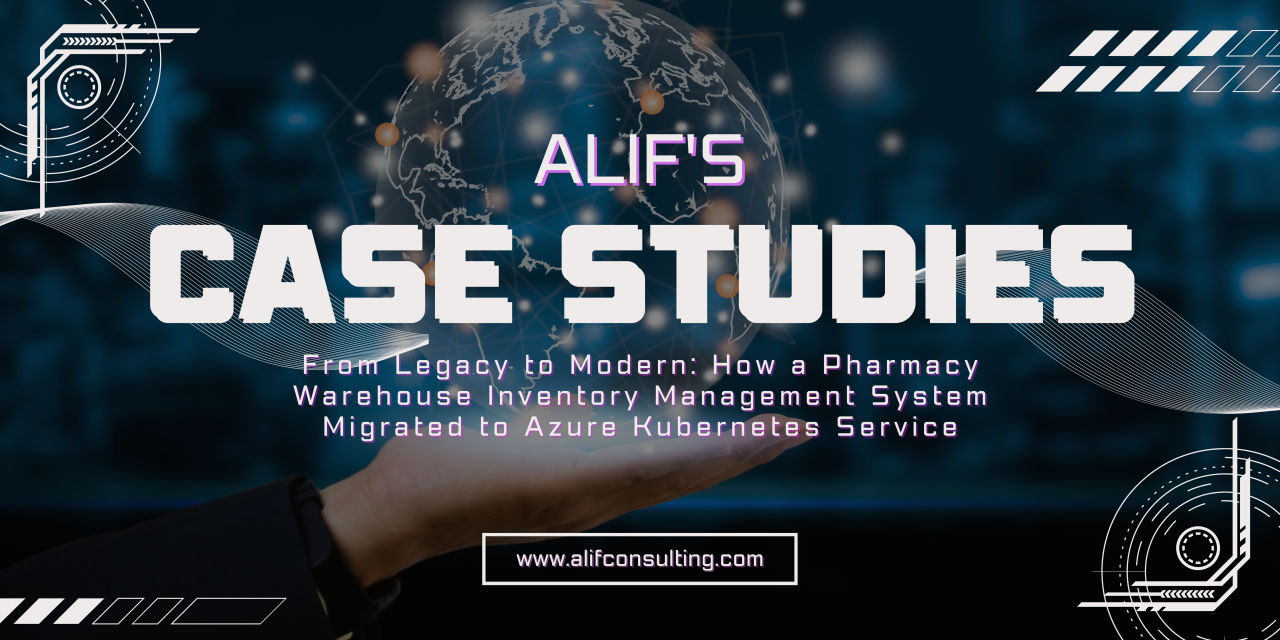
Application modernization success story!
AlifCloud IT Consulting Pvt. Ltd.
The Microsoft Service Distributor
The process of updating legacy applications' internal architecture, platform infrastructure, and/or functionalities is known as application modernisation. Currently, much of the conversation about application modernization is concentrated on monolithic, on-premises applications, which are typically updated and maintained using waterfall development processes, and how those applications can be adapted to cloud architecture and release patterns, specifically microservices and DevOps.
The advantages of application modernization can typically be summed up as increasing the speed at which new features are delivered, making it possible for other services to consume the functionality of existing applications through APIs, and moving applications from on-premises to the cloud to improve application scale and performance as well as long-term data centre and IT strategy.
Usually, the costs and complexity of application modernisation are the biggest obstacles. Applications should not be moved from on-premises to the cloud only for the sake of moving them. In contrast, other applications may gain significantly from re-platforming or rearchitecting but are so tightly integrated with current infrastructure and systems that the complexity of modernization may outweigh the advantages.
Like most things, the secret to application modernization success is a strategy and choosing projects where the advantages of cloud, speed, performance, scale, new feature development, etc. offer the given application a clear route to improved user experience and ROI.
Customer Introduction
The Customer has grown into a neighbourhood pharmacy for millions of consumers worldwide. Searching for ways to serve customers’ health needs better while embracing the efficiency of the cloud; the Customer worked with Alif Consulting to migrate a pharmacy warehouse inventory management system to Azure Kubernetes Service and Azure Database for MySQL – Flexible Server. With this fully managed Compute and Database as a Service (DBaaS) in place, Customer has achieved automatic scaling, disaster recovery, and significant cost savings in a smaller footprint.
The customer delivers care like no one else can, helping customers improve their health by lowering costs, increasing access to care, and acting as a trusted partner. As part of that commitment, the Customer is on a digital transformation journey, rolling out cloud-based solutions to better serve individuals.
Customer Challenges
Customer Requirements
领英推荐
Solution Overview
As part of the application migration, Azure Kubernetes Service (AKS) was chosen as a deployment platform. AKS helped minimise infrastructure maintenance and provided an automated upgrade, repair, monitoring, scaling, and code-to-code cloud pipelines and guardrails.
After working closely with Alif Consulting teams, the Customer leveraged Azure Kubernetes Service. These platforms provide Customer with a fully managed experience for both computing and databases.
The customer migrated all application instances and reorganised them to align with 10 Azure Kubernetes Service (AKS) nodes in a single cluster, fully eliminating the cost of maintaining and managing application hosting environments. AKS allows for automatic rapid scaling up or down to meet demand, while node pooling allows for more processing power. “Now, everything can be done in a few clicks.
Solution Design?
Design Principles
Outcome
As soon as the migration was complete, the customer immediately realized the benefits. The new system provides a smaller footprint at a lower maintenance cost while meeting the core objectives of efficiency, scalability, and high availability.
The customer can easily monitor all processes, services, APIs, and alerts, making management much more straightforward than before. And security capabilities, including Oauth, Azure Key Vault, and symmetric/asymmetric encryption, keep customers compliant with all required regulations.